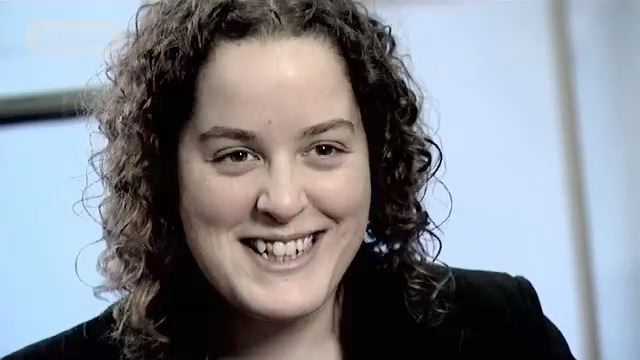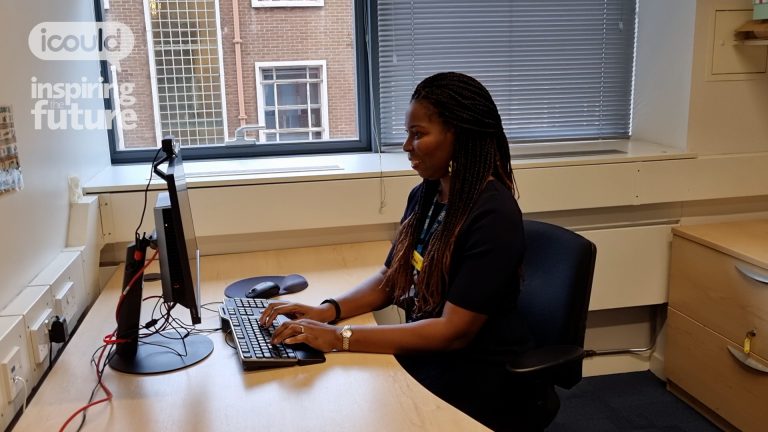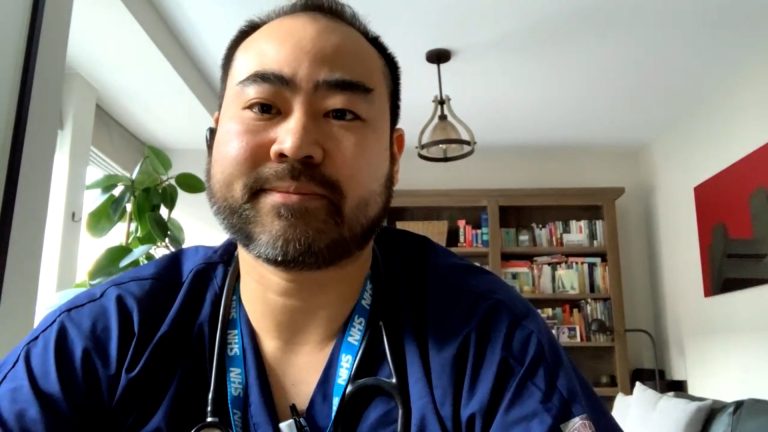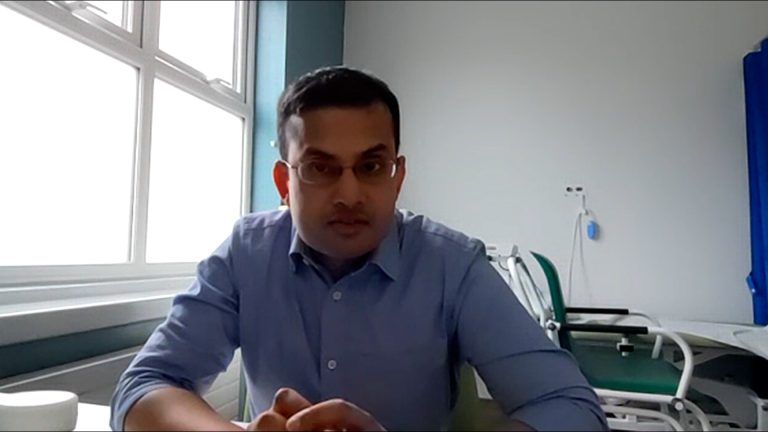IT Project Manager
Salford Royal Infirmary
Madeline N
My name’s Madeline N, I’m an IT project manager Salford Royal Foundation Trust. I ended up at Salford Royal as a result of the graduate scheme.
I already worked in the NHS before I started on the graduate scheme and I was working in informatics which is the field that I’m still in at the Christie NHS foundation trust. It popped up as an email I had through as a sort of graduate prospect.
It was an area I was already interested in and could see the benefit of that sort of accelerated program.
I think it’s already taken me leaps and bounds on from where I was so it’s made me more into a manager and more reflective and effective probably on what I do.
I did a degree in biomedical science and so I’d got that sort of health care scientific background anyway and when I graduated I wasn’t really sure what I wanted to do so I signed up for a job working on the bank at our local hospital working as a health care assistant and did six months on pretty much every ward on the hospital and stepped from that further into the NHS.
My father is a civil engineer and director of a water company and my mum is an accountant that specialises in charity based accountancy.
Not very much synergy in terms of health care. (University was a)Fairly forgone conclusion that was fairly assumed probably partly because my father went to university and both of my older sisters when to university and also partly because of the school I was at the vast majority of students that were at that school went to university so it was assumed that would be the route to go.
I went to the University of Manchester primarily because originally I went to university to do life sciences, partly because I wasn’t quite sure what direction I wanted to go in at that point. And life sciences basically gives you the opportunity to pick a combination of biology, chemistry related modules, there’s only a few universities that do it, but Manchester’s one of the top universities for that in the country and I was quite tempted by the idea of a big city having been brought up in a fairly small place.
Fairly keen runner, also got involved in rowing while I was at university and was a Cox for the university crew, and now do that for a local club in Manchester.
When I did my GCSE’s my mum had a brain haemorrhage and she was in hospital for quite a long period of time. So where I’d been used to a fairly stable family environment being able to do what I needed to do at the time – it was quite a different scenario to be in. Going back and forth to the hospital, things like that.
And then when I did my A Levels I had glandular fever and I was very unwell with that so I struggled to attend school all the time, so I spent a lot of time outside of school, it was often quite difficult to keep up with a lot of other people because I wasn’t going to school every day.
I think that sort of caring mentality has always been there and probably manifested in multiple ways, because when she was ill I spent a lot of time taking care of her. I’ve always kind of wanted to have that, working as a support worker, as a health care assistant I got that feeling of being able to help people but the thing I found very frustrating was that I was only able to help one person or the patient I was with at the time and sort of that grand scheme of things stuff, the big stuff you had to live with because you were just a very small cog in that machine. You couldn’t do anything about it, which is probably why I started going in the direction of having a more management role where I can impact potentially a hundred patients rather than just one with an action.
After a degree in biomedical science, Madeline worked as a healthcare assistant in her local hospital. Whilst there she found out about the Graduate Management training scheme. She was already interested in the NHS and could see the benefits of an accelerated training program.
More information about IT business analysts, architects and systems designers
The UK average salary is £29,813
There are 37.5 hours in the average working week
The UK workforce is 47% female and 53% male
Future employment
- Liaises with internal/external clients to analyse business procedure, clarify clients’ requirements and to define the scope of existing software, hardware and network provision
- Undertakes feasibility studies for major IT developments incorporating costs and benefits, and presents proposals to clients
- Communicates the impact of emerging technologies to clients and advises upon the potential introduction of such technology
- Provides advice and assistance in the procurement, provision, delivery, installation, maintenance and use of IT systems and their environments
- Examines existing business models and flows of data and designs functional specifications and test plans for new systems in order to meet clients’ needs
- Researches, analyses, evaluates and monitors network infrastructure and performance
- Works closely with clients to implement new systems











